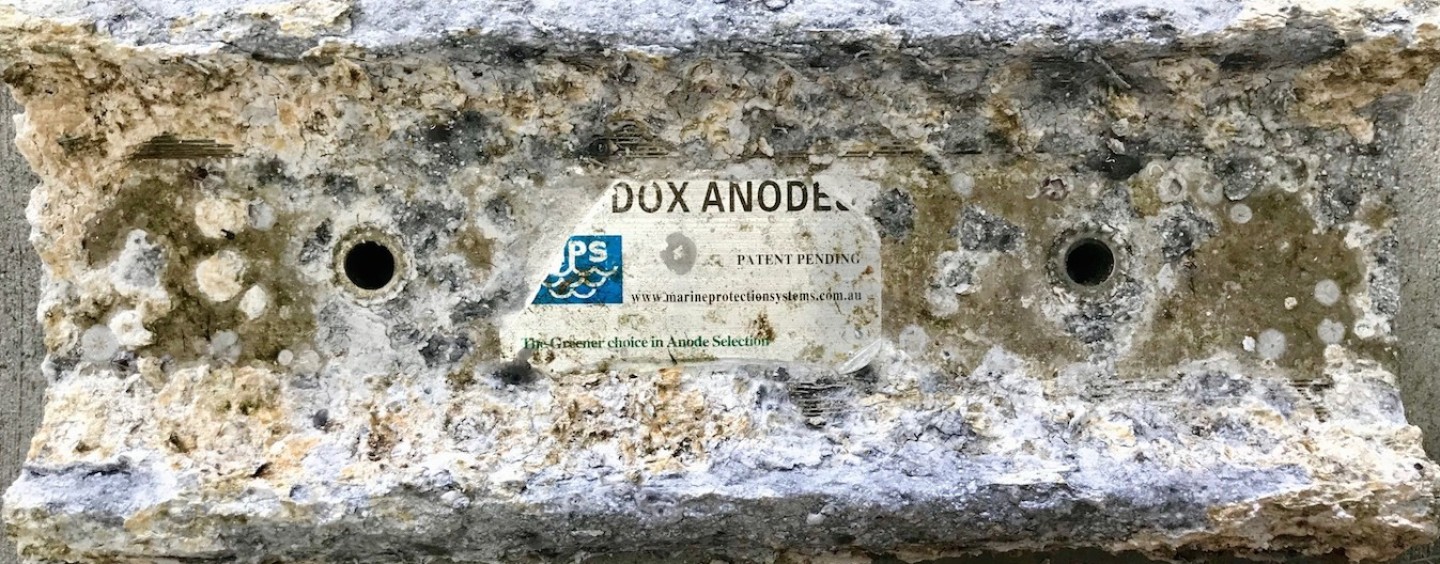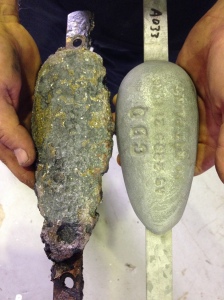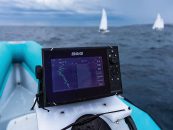We have all heard techie boaters refer to the terms “sacrificial anode” or “martyr anode”. As the terms suggest, they are alloys that sacrifice themselves to protect the rest of your boat. Let us learn about these critically important “heroic” metals.
Photo by Seatech Marine
What is an anode?
An anode is a sacrificial block made of either zinc or aluminum alloy that is mounted on, or connected to, the underwater metal parts of your boat, such as stern drives, shafts, propellers, rudders, trim tabs and skin fittings. They come in a variety of shapes and sizes.
What do anodes do?
Anodes are designed to sacrifice themselves by depleting first, rather than the expensive parts of your drive or underwater metal fittings. Stern drives, underwater propulsion gear and hull fittings are made up of two or more types of metal. Galvanic corrosion is an electrochemical reaction between two or more different (or dissimilar) metals submerged in seawater. Anodes connected to these metals are more galvanically active and will corrode before the vital parts of your vessel.
Are your anodes corroding as they should?
Vessel owners need to be aware of the location and condition of sacrificial anodes mounted on their boat. Many owners do not realise the corrosion damage that can occur to stern drives and underwater metal fittings if anodes are not regularly maintained or replaced.
Why is it critical to check and maintain anodes?
Generally, sacrificial anodes need to be replaced when they are 50% consumed. Correct corrosion protection to vital boat parts is not achieved if anodes are left to deplete below 50%. Usually, the size and amount of anodes installed to each moored vessel are designed to last up to 12 months. However, many factors can contribute to anodes depleting at a faster rate, including water temperature, salinity, water current flow, stray electrical current, and vessel or jetty wiring faults. Therefore, checks are often required monthly, quarterly or six-monthly to determine the depletion rates of sacrificial anodes.
Any other advice?
Upon purchasing your vessel, check the condition of anodes and for other signs of corrosion as soon as possible. Obtain maintenance history to determine when the anodes were last replaced. Ensure that your vessel and jetty electrical systems are in good order.
Consult your local vessel and engine/drive package dealer for specific requirements.
By Shane Subichin
Shane is the general manager of The Boat Works. He has over 25 years of technical experience in the marine industry, and is the only Certified Service Managers (CSM) in Australia.
————-
Note: This is a general guide only. If you would like personalised advice regarding anodes, contact Shane on 07 5500 0000. He will help you and/or direct you to a professional team onsite for further action. It is recommended you contact your local boat or engine service dealer for specific requirements for each vessel and engine/drive package.































